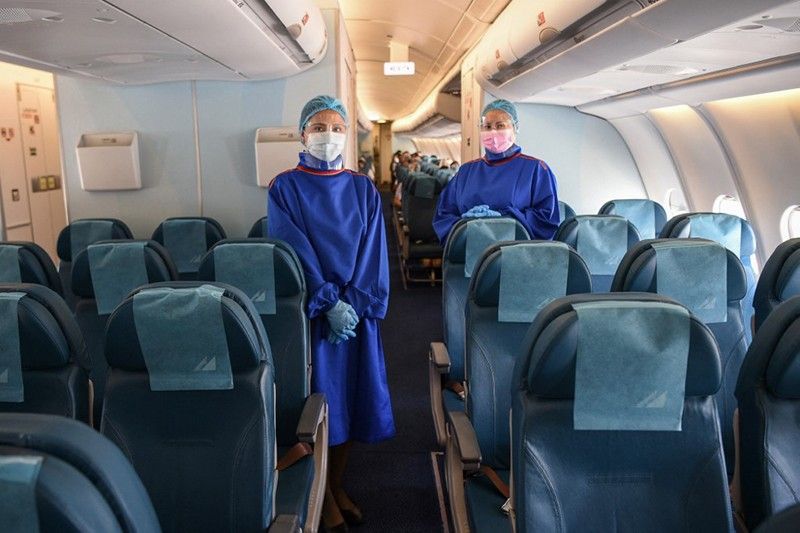IATF updates protocols for arriving foreign nationals

MANILA, Philippines — The government has eased the entry requirements for arriving foreign nationals as it continues to update its pandemic protocols to spur economic activity and reopen tourism.
The updated protocols for arriving foreigners are contained in the Inter-Agency Task Force for the Management of Emerging Infectious Diseases (IATF) Resolution No. 160-D issued Thursday. They amended some of the protocols under IATF Resolution No. 160-B approved last Feb. 3.
The amended protocols provided exemptions to a provision of IATF Resolution No. 160-B, which stated that foreign nationals traveling to the Philippines for business and tourism may enter the country without visas provided they have valid tickets for their return journey to the port of origin or next port of destination not later than 30 days from the date of their arrival.
Under the latest resolution, foreign spouses or children of Filipino citizens and former Filipino citizens with balikbayan privilege, including their foreign spouse or children who are not balikbayans and who are travelling with them to the Philippines are no longer required to have return tickets.
The amended protocols also state that foreign nationals coming from visa-free countries who intend to stay beyond 30 days for purposes other than tourism or leisure may now enter the Philippines through an entry exemption document issued under existing IATF rules and regulations.
Foreigners covered by the provision should be fully-vaccinated against COVID-19 except for minors below 12 years old who are traveling with their fully inoculated parents. They should also possess an acceptable proof of vaccination and present a negative RT-PCR test taken within 48 hours before departure from the country of origin or first port of embarkation in a continuous travel to the Philippines. The rule does not cover lay-overs, provided that the foreign national has not left the airport premises or has not been admitted into another country during the lay-over.
Foreign spouses and children of Filipino citizens who are not nationals of visa-free countries, whether they are travelling with the Filipino citizen or not, and those who came from visa-required countries or who are restricted foreign nationals may enter the Philippines without an entry exemption document provided they have been issued a 9(a) visa with the appropriate visa notation. A 9(a) visa is issued to foreigners who visit the Philippines for a short period of time.
Acting presidential spokesman Karlo Nograles said all foreign nationals traveling to the Philippines for business and tourism may enter the country without visas as long as they are fully vaccinated and present the required COVID-19 proof of inoculation and testing documents. He expressed confidence that the updated protocols would not lead to a spike in infections as long as all health protocols are observed.
"The bottomline is we are now accepting foreign nationals coming for tourism and business...We’re confident that because of these protocols, we will be able to ensure that number one, our tourism industry will pick up, our tourism industry will recover... It will also be good for the economic growth and development of our country because it will revive the tourism industry and all other industries dependent on tourism," Nograles told state-run People's Television.
"If everybody complies with the minimum health and safety protocols, including tourists and foreign nationals, we can be sure that it won't cause a spike or a surge in COVID," he added.
The IATF has also approved the recommendation of the foreign affairs department to accept the national COVID-19 vaccination certificates of Brazil, Israel, South Korea and Timor Leste for arrival quarantine protocols and for interzonal and intrazonal movement. The quarantine and immigration bureaus and the transportation department's One-Stop-Shop were directed to recognize only the proofs of vaccination approved by the IATF.
- Latest
- Trending































